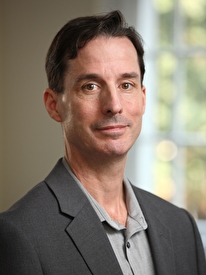
Opening Presentation: The Transport Transformation Can’t Wait for Technofuturistic Utopia

Speaker
Peter Norton, Associate Professor of History, Department of Engineering and Society, University of Virginia
Panelists
Ginny Crowson, Connected and Automated Vehicles Director, MnDOT
Thomas Fisher, Director, Minnesota Design Center, University of Minnesota
Marc Valencia, Vice President of Public Engagement and Communications, NewPublica
“Pay no attention to the man behind the curtain,” the Wizard of Oz told the adventurers. The Wizard feared they would discover his deception. This, according to Peter Norton, is our dilemma. We have all the technology we need for the transport transformation, but tech companies, automakers, and others want to convince us that we need unlimited futuristic tech. For 90 years, they have been selling us impossible futures, always on the promise that amazing technology will finally deliver a city in which everyone can drive anywhere at any time without delay. When the promises fail, they invoke the next generation of amazing technology to restore their lost credibility. But amazing technology does not make car dependency work. The promoters’ goal has never been transport sufficiency; they sell transport consumerism.
In this presentation, Norton pulled back the curtain, exposed the high-tech distraction, and demonstrated that we already have everything we need for the affordable, healthful, inclusive, and sustainable transport future we seek.
Following the presentation, a panel of Minnesota experts discussed Norton’s ideas and explored how academic researchers, agencies, and industry partners can work together to build effective, safe, and innovative transportation technologies.
Luncheon Presentation: Equity and Electrification

Speaker
Shelley Francis, Co-Founder and Managing Partner, EVNoire and EVHybridNoire
This year is one of the most transformational moments in history for the electrification sector. With the convergence of the Infrastructure Investment and Jobs Act, the Inflation Reduction Act, infrastructure deployment, workforce and economic development opportunities, and rebate and incentive programs, we have to ask ourselves: What will electrification look like in five years? As we speed toward electrifying all transportation sectors, how can we leverage electrification best practices and diversity, equity, and inclusion considerations to ensure that our approach is accessible to all consumers?
In this presentation, Shelley Francis examined the historical context of transportation policy and explored how it impacts current transportation, movement, and public health. She also shared electrification best practices from research and case studies using data-driven mobility frameworks.
Credit
Conference attendees are eligible for 7.25 Professional Development Hours (PDHs) and up to 7.25 American Institute of Certified Planners (AICP) maintenance credits.
More Information
Please contact Chelsea Arbury Prorok at arbur001@umn.edu.
Sponsor
The conference is sponsored by the Center for Transportation Studies at the University of Minnesota.